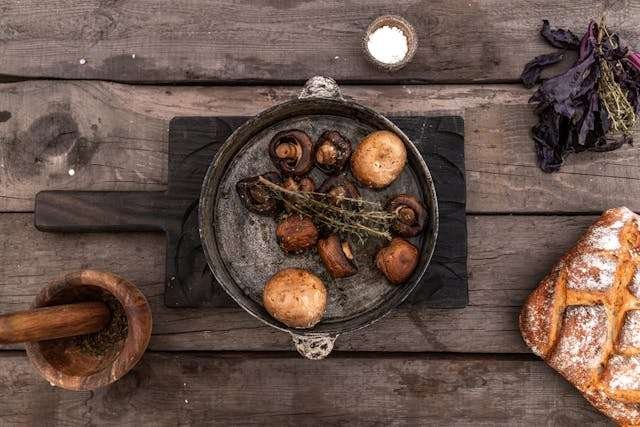The Ultimate Guide by Chelsea’s Cleaning Services
If you own a cast iron skillet, you know that proper care is key to preserving its non-stick surface and longevity. Cast iron skillets are kitchen essentials, offering durability and excellent heat retention, but they require a specific cleaning method to avoid rust and maintain their seasoning. At Chelsea’s Cleaning Services, we’re here to help with a step-by-step guide on how to clean your cast iron skillet, keeping it in pristine condition for years of use.
Why Cast Iron Skillets Need Special Care
Cast iron skillets develop a natural seasoning over time, unlike regular non-stick pans. This layer of seasoning is what gives the skillet its non-stick properties and enhances the flavor of your food. However, improper cleaning can strip this protective layer, causing food to stick, rust to form, and the skillet to lose its signature qualities. Properly cleaning and maintaining your cast iron skillet will save you time, money, and frustration.
Step-by-Step Guide for Cleaning a Cast Iron Skillet
Let Your Skillet Cool Down
Before cleaning, allow the skillet to cool slightly. Because of the sudden temperature swings, cleaning it while it’s still too hot may cause warping. However, don’t let it sit with food debris for too long, as this can make the cleaning process harder.
Rinse with Warm Water
After the skillet has cooled slightly, give it a quick wash with warm water. Using cold water might cause cracking, so stay away from it. Cast iron cookware should never be submerged in water since this might lead to rust. It only takes a brief washing to get rid of any food residue.
Scrub Gently
Using a non-abrasive scrubber, such as a soft sponge or brush, gently scrub the skillet to remove food remnants. For stubborn, stuck-on food, sprinkle some coarse salt into the skillet and scrub with a damp cloth. The salt acts as a natural abrasive that won’t damage the seasoning.
Avoid Soap
While some modern experts may recommend using a bit of mild soap occasionally, traditional methods advise against it. Soap can strip away the seasoning of your cast iron skillet. Instead, rely on warm water and scrubbing to clean the surface thoroughly.
Dry the Skillet Completely
After rinsing, it’s crucial to dry the skillet immediately. Leaving it wet can cause rust to form. Use a clean towel to dry it thoroughly, then place it on a low flame for a few minutes to evaporate any remaining moisture.
Reapply Oil for Seasoning
Once the skillet is completely dry, apply a thin layer of vegetable oil, flaxseed oil, or another high-smoke-point oil. This step helps to maintain the non-stick surface and prevents rust from forming. Use a paper towel to spread the oil evenly across the skillet, inside and out, then wipe away any excess oil to prevent a sticky residue.
Store in a Dry Place
To further protect your cast iron skillet from moisture, store it in a dry place. If possible, avoid stacking it with other pots and pans. If you must stack, place a layer of paper towels between the skillet and other cookware to absorb any moisture and prevent scratches.
Typical Errors to Avoid in Cast Iron Skillet Cleaning
At Chelsea’s Cleaning Services, we’ve seen homeowners make common mistakes that can damage their cast iron skillets. Avoid these pitfalls to keep your skillet in top shape:
- Using Steel Wool or Abrasive Pads: These can scratch and remove the skillet’s seasoning, leading to rust. Stick to soft sponges and brushes.
- Soaking the Skillet: Water is cast iron’s worst enemy. Even a short soak can lead to rust formation.
- Forgetting to Dry: Always dry the skillet thoroughly after washing. Any remaining water can quickly lead to rust, damaging the skillet’s surface.
A Rusted Cast Iron Skillet’s Restoration Guide
If your cast iron skillet does develop rust, don’t worry—it’s not the end! With a bit of effort, you can restore it to its former glory:
- Scrub the Rust: Use steel wool or a rust-removal pad to scrub off all visible rust. You want to get down to the bare metal if necessary.
- Re-season the skillet by giving it a good rinsing and drying after the rust has been removed.
- Then, coat it with a thin layer of oil and place it upside down in the oven at 350°F for one hour. This process will help rebuild the seasoning.
- Regular Maintenance: After restoring your skillet, follow regular cleaning and seasoning practices to prevent future rust.
Pro Tips for Long-Lasting Cast Iron Skillets
- Cook Often: The more you use your skillet, the better its seasoning will become. Regular cooking with oils and fats naturally builds up the skillet’s non-stick layer.
- Avoid Acidic Foods: Ingredients like tomatoes or vinegar can strip the skillet’s seasoning, especially if cooked for long periods.
- Use Proper Utensils: Metal utensils can scratch your skillet’s seasoning. Opt for wooden or silicone tools to prolong its life.
Maintaining a cast iron skillet doesn’t have to be complicated. With a few simple steps, you can ensure your skillet lasts for years and even generations. By following the tips from Chelsea’s Cleaning Services, you’ll enjoy a perfectly seasoned, rust-free cast iron skillet that enhances the flavor of every meal. If you need professional cleaning help, feel free to contact us for expert advice or services!




